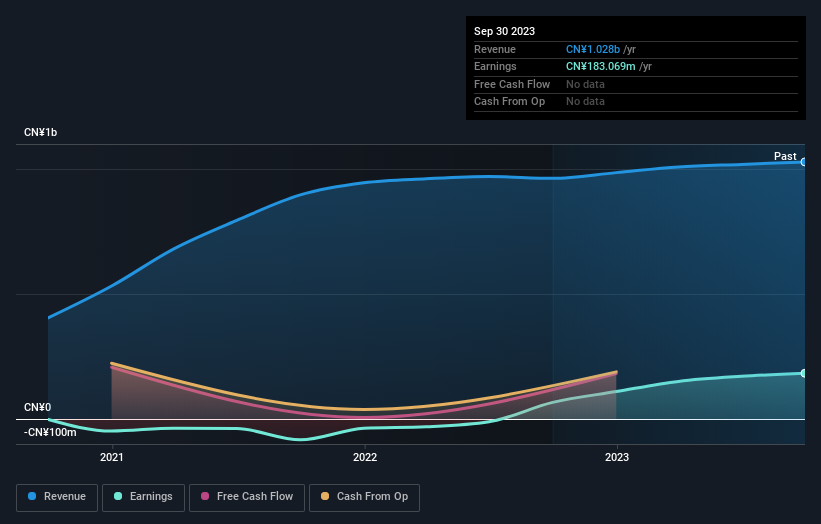Owning 70% in iHuman Inc. (NYSE:IH) means that insiders are heavily invested in the company's future
Key Insights
Insiders appear to have a vested interest in iHuman's growth, as seen by their sizeable ownership
55% of the company is held by a single shareholder (Yufeng Chi)
Ownership research, combined with past performance data can help provide a good understanding of opportunities in a stock
If you want to know who really controls iHuman Inc. (NYSE:IH), then you'll have to look at the makeup of its share registry. And the group that holds the biggest piece of the pie are individual insiders with 70% ownership. Put another way, the group faces the maximum upside potential (or downside risk).
With such a notable stake in the company, insiders would be highly incentivised to make value accretive decisions.
Let's delve deeper into each type of owner of iHuman, beginning with the chart below.
Check out our latest analysis for iHuman
What Does The Institutional Ownership Tell Us About iHuman?
Many institutions measure their performance against an index that approximates the local market. So they usually pay more attention to companies that are included in major indices.
We can see that iHuman does have institutional investors; and they hold a good portion of the company's stock. This suggests some credibility amongst professional investors. But we can't rely on that fact alone since institutions make bad investments sometimes, just like everyone does. It is not uncommon to see a big share price drop if two large institutional investors try to sell out of a stock at the same time. So it is worth checking the past earnings trajectory of iHuman, (below). Of course, keep in mind that there are other factors to consider, too.
Hedge funds don't have many shares in iHuman. From our data, we infer that the largest shareholder is Yufeng Chi (who also holds the title of Top Key Executive) with 55% of shares outstanding. Its usually considered a good sign when insiders own a significant number of shares in the company, and in this case, we're glad to see a company insider play the role of a key stakeholder. The second and third largest shareholders are Peng Dai and Liang Tian, with an equal amount of shares to their name at 6.1%. Interestingly, the second-largest shareholder, Peng Dai is also Chief Executive Officer, again, pointing towards strong insider ownership amongst the company's top shareholders.
While it makes sense to study institutional ownership data for a company, it also makes sense to study analyst sentiments to know which way the wind is blowing. Our information suggests that there isn't any analyst coverage of the stock, so it is probably little known.
Insider Ownership Of iHuman
While the precise definition of an insider can be subjective, almost everyone considers board members to be insiders. Management ultimately answers to the board. However, it is not uncommon for managers to be executive board members, especially if they are a founder or the CEO.
I generally consider insider ownership to be a good thing. However, on some occasions it makes it more difficult for other shareholders to hold the board accountable for decisions.
Our information suggests that insiders own more than half of iHuman Inc.. This gives them effective control of the company. Given it has a market cap of US$151m, that means they have US$106m worth of shares. Most would be pleased to see the board is investing alongside them. You may wish todiscover (for free) if they have been buying or selling.
General Public Ownership
The general public-- including retail investors -- own 25% stake in the company, and hence can't easily be ignored. This size of ownership, while considerable, may not be enough to change company policy if the decision is not in sync with other large shareholders.
Next Steps:
While it is well worth considering the different groups that own a company, there are other factors that are even more important.
Many find it useful to take an in depth look at how a company has performed in the past. You can access this detailed graph of past earnings, revenue and cash flow.
Of course this may not be the best stock to buy. Therefore, you may wish to see our free collection of interesting prospects boasting favorable financials.
NB: Figures in this article are calculated using data from the last twelve months, which refer to the 12-month period ending on the last date of the month the financial statement is dated. This may not be consistent with full year annual report figures.
Have feedback on this article? Concerned about the content? Get in touch with us directly. Alternatively, email editorial-team (at) simplywallst.com.
This article by Simply Wall St is general in nature. We provide commentary based on historical data and analyst forecasts only using an unbiased methodology and our articles are not intended to be financial advice. It does not constitute a recommendation to buy or sell any stock, and does not take account of your objectives, or your financial situation. We aim to bring you long-term focused analysis driven by fundamental data. Note that our analysis may not factor in the latest price-sensitive company announcements or qualitative material. Simply Wall St has no position in any stocks mentioned.

 Yahoo Finance
Yahoo Finance 

